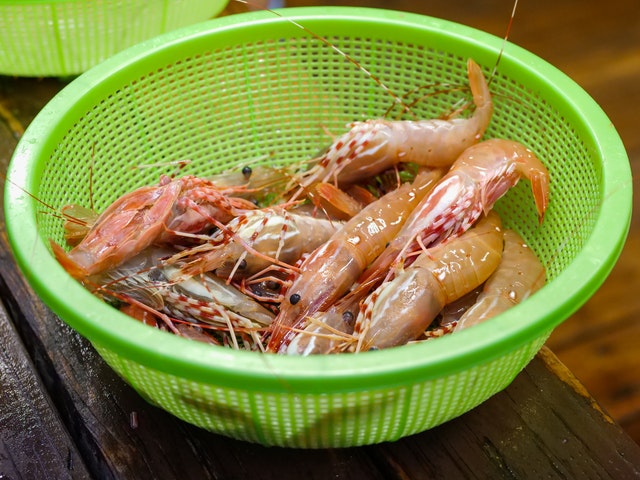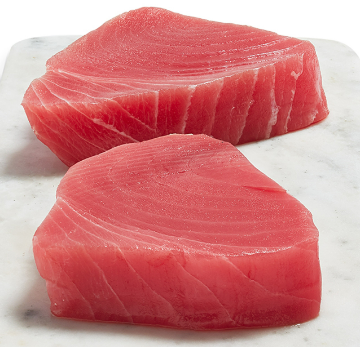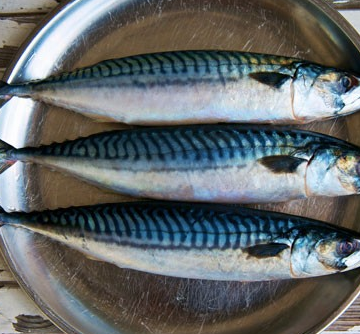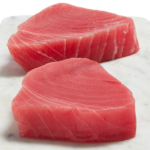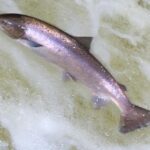Maybe you gave your dog shrimp prior to reading this article. Perhaps you did some research before giving Fido these delicious crustaceans. Shrimps are rich in protein and nutrients and delicious and nutritious. What happens to your dog if you give shrimp to him, or even indulge him in a bit out of your shrimp cocktail?
Can Dogs Eat Shrimps?
Shrimps are a popular food and can be added to many dishes, including pasta. You can also eat it by itself, with butter or garlic flavors. Encyclopedia Britannica says that there are many varieties of shrimp that can be used for food. The larger shrimps are the best.
Shrimps are America’s most beloved seafood. According to one source, an average American consumes 4lbs of shrimps every year. This is only for humans.
What about dogs? Cooking shrimp meat can be a great way to treat your dog. You can use these common food safety tips to cook shrimps for dogs and ensure that shrimp is safe for your dog.
Dogs can eat shrimps that is properly cooked. As with humans, dogs can also be allergic to shrimps. It might be something they don’t like at all.
Although shrimps are a great snack, it should not be given to large quantity to dogs. They can become ill from eating it. This comprehensive guide will explain the basics of Shrimp, so you can add it to your dog’s food.
Shrimps are a good source of protein, vitamins and minerals that can be used to help dogs maintain a healthy oxidative state. Shrimps are rich in nutrients, so you can feed it in small quantities to adult dogs.
Because it has low fat and carbs, it makes a great choice to commercial dog treats. Containing only 6 calories, a single shrimp is great for large dogs who are on a diet.
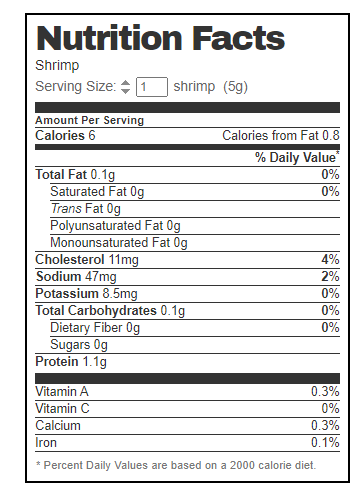
For almost all dogs, shrimps can be a good source of protein. Dogs with smaller bodies require less nutrition than bigger ones. The food you give your dog will depend on their size.
Are you thinking about deep-fried, raw, or cooked shrimp for your dog?
While you can feed your dog any kind of raw meat, seafood is a different matter. Shrimp can be dangerous for your dog’s health if it isn’t cooked or is raw. Before giving shrimp or shellfish to your dog, make sure it is well cooked. Most harmful microorganisms, such as bacteria, can be killed by cooking shellfish. However, cooking may not be enough to kill some toxins in shellfish.
Although it is uncommon, toxic reactions to contaminated seafood may result in paralysis, neurological symptoms or gastrointestinal distress. Your veterinarian should be consulted immediately if your dog is suspected of having eaten food poisoning.
Dogs can eat uncooked shrimp, however dogs should not be fed raw shrimp. Salmonella and listeria can easily be passed to raw shrimp, uncooked meats such as chicken and beef.
Although the bacteria is not present in shrimp, improper handling and contamination can cause infection. Cooking the shrimp is the best way to kill bacteria.
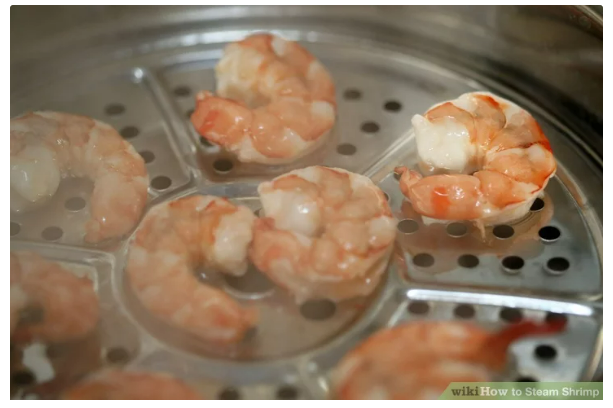
We don’t recommend feeding your dog deep-fried shrimp. This is a highly processed and unhealthy food that your dog shouldn’t be allowed to eat. Dogs can have digestive problems if they eat too many deep-fried foods. You will likely need to clean out any stool.
If you are making a curry, saucy or other dish with Shrimp, make sure to cook it separately. You should not give your dog spicy or seasoned Shrimp. We recommend that your dog only be fed –cooked Shrimp.
What parts of the shrimp can be safely eaten?
The only part that can be eaten is the meat contained within the tail’s hardshell.
The shrimp’s hard shell, or exoskeleton is made from chitosan. It is very difficult for dogs to digest. The edges are sharp and irregular, which can cause problems in their digestive system or even their intestines. It can also create choking hazards and blockage problems.
How many shrimp can dogs eat?
Half a cup of Shrimp will suffice for most dogs. You can adjust this to fit your dog’s weight. Shrimp is low in calories and fat, but high in cholesterol. Shrimp should be enjoyed as an occasional treat and not as a main course.
Shrimp cholesterol is more harmful than other cholesterol. Your dog should enjoy shrimp moderately.
Are shrimps good for dogs?
Shrimps, are high in Omega 3 fatty acids, which is, like many other shellfish, good for the skin and heart. It contains nutrients, vitamins and antioxidants.
Let’s look at those vitamins and nutrients:
Vitamin B12
Vitamin B12 is essential for dogs’ digestive health and metabolism and daily well-being. Vitamin B12 helps maintain his blood cells and gives him the energy he needs.
Insufficient vitamin B12 can cause fatigue, weight loss, and appetite loss. It is vital that he gets his daily vitamin B12.
Niacin
Niacin is also known as Vitamin B3 and is an antioxidant which repairs cells and converts energy to glucose. This gives your dog the energy it needs to function. It is vital for healthy hormone levels.
He will feel tired and dull mentally without it.
Phosphorus
Phosphorus is a similar mineral to calcium and helps maintain strong bones as well as healthy teeth. It is essential for the absorption and functioning of other B vitamins. It is also important for maintaining healthy kidney function and preventing rickets.
Selenium
A vital trace mineral that is responsible for the effective functioning of the thyroid glands and the immune system. It is an antioxidant that protects cells from damage that could lead to cognitive aging, cancer, inflammation, and other conditions.
Choline
an essential nutrient, is vital for healthy brain development, muscle function, and nervous system function. Dogs can make choline, but not enough to meet their entire dietary needs. To avoid choline deficiency, a dietary supplement is essential.
Omega-3 fatty acids
They are good fats which can improve heart function, coat quality and reduce itching and skin irritation. They also support cognitive health and have been shown to be effective in relieving joint pain and allergies.
In addition, shrimps also contain a very useful antioxidant, Astaxanthin, which comes from an algae that they eat. It is a carotenoid that gives salmon, krill and shrimp their pink/red color. These supercharged antioxidants can not only eliminate free-radicals, but also reduce inflammation and may help prevent certain types of cancer and diabetes.
What are the possible side effects for your dogs?
Yes, you guessed it, there are some negative to your dog eating shrimps.
Cholesterol
In addition to the cholesterol that our bodies naturally produce, there are two types of dietary cholesterol: plant-based and animal-based.
Bad cholesterol is animal-based. As a result, frequently eating shrimps can lead to plaque buildup in the arteries and heart disease. Although it is not common for dogs to have high levels of cholesterol, it can happen if his diet is bad and he doesn’t exercise.
Bacteria
This is a very serious problem, especially with the 2 most common ones found in shrimps, Listeria and Salmonella.
Salmonella symptoms:
- Vomiting
- Diarrhea can be deadly
- Appetite loss
- Fever
- Lethargy
Listeria Symptoms:
- Vomiting
- Nausea
- Diarrhea
- Fever
- Stiff neck
- Lethargy
- Weakness
- Inadequacy of coordination
To make sure that none of those side effects are seen in your dog, treat giving your dog shrimps as a special occasion, even if they are well cooked (as they should).
Side effects may include excessive flatulence, vomiting, diarrhea or diarrhea . If you have any of these symptoms, your pet shrimp should be stopped from being fed. Ear infections, skin hot spots and scratching may also be signs. These are signs that Shrimp is not the best food choice for your dog.
Anaphylactic shock can cause death and is considered a more serious side effect. If your pet exhibits symptoms such as hives, redness or swelling, you should immediately consult a veterinarian. This is a rare side effect. This side effect is more common when Shrimp isn’t properly cooked or eaten raw.
Finally, most seafood contains no fiber. Consequently, a higher fiber dog food formula is recommended for dogs who enjoy shrimp but don’t use the bathroom as frequently as they used to.
Last Thoughts
Now you know that your friend can eat Shrimp very safely depending upon how it is prepared. Limit him to the fleshy parts of the body. You must also remove the head, tails and shell. You should cook the shrimp thoroughly and serve it plainly, without seasonings or spices.
Shrimp has many health benefits. It’s full of healthy fats and nutrients. It is a favorite scent for dogs. Check your pup’s reaction to Shrimp. He could be allergic if he doesn’t.
You can add it to your dog’s weekly food if he is responsive. Does your dog like Shrimp? We would love to hear about your crazy shrimp-loving dog!
If you want to try a super healthy recipe with shrimps, Try this one
For a healthy and happy dog make sure you feed him with the right products designed for his breed, age group and general activity.
Ultimately, your dog health and well-being is very important and rushing him to the vet could not only be heart breaking but also extremely expensive. If you do not have an insurance for your dog, maybe it is worth considering it.
FAQ
Do shrimps cause bad breath?
Yes, it’s quite possible. Bad breath in dogs can be caused by many fish- and seafood-based foods. To combat bad breath, you can use a dogfood to prevent it. You can also DIY dental care methods to improve your pup’s oral hygiene.
Can dogs have shrimp tails
As we’ve already stated, dogs shouldn’t eat the shrimp tail whole, rather the meat contained within the hard shell.
What should I do if my dog eats shrimp?
You should remove any shells before giving shrimp to your dog. Raw shrimp shells can pose a risk to dogs’ health and may be fed to them by some people. We do not recommend this and encourage you to speak with your vet if your dog accidentally ingests shrimp shells.
Can dogs eat shrimp tempura?
Dogs should not eat deep-fried food. Deep-frying can cause more harm to dogs’ bodies and digestive systems than just eating it. Even though tempura is unlikely to cause significant harm, it’s worth calling your vet if you suspect your pet might be allergic to any seasonings.
Can dogs have shrimp and scampi?
No, especially if you cook them with butter and garlic. If you usually feed him a few leftovers, make sure you know the ingredients beforehand, especially if you used a lot of butter, sauce, etc..
Do dogs eat shrimp crackers or chips?
It all depends on the recipe. Cracker recipes that contain flour can cause allergic reactions in dogs who are not gluten-free. Chips should not be eaten in excess, especially if they are deep-fried.
Can dogs eat shrimp alfredo?
Not really, it all depends on the ingredients in the Alfredo recipe. Dairy can be a problem for dogs, as many Alfredo recipes contain dairy. Shrimp Alfredo should be enjoyed by your dog in moderation.
Can dogs eat shrimp cocktail?
Shrimp cocktail simply consists of cooked shrimp mixed with a sauce. The sauce is not recommended for dogs but the shrimp can be served to your dog if you allow it to cool off.
Can dogs eat shrimp fried rice?
Shrimp fried rice is usually fine as most ingredients are vegetables, eggs, and rice. However, some recipes and / or cooked use far too much butter or oil, which can have a negative impact on your dog’s health. Do not feed your dog shrimp fried rice leftovers, especially if you used soy sauce. To ensure that your dog does not have an allergic reaction, it is important to be familiar with all the ingredients.
Is shrimp allowed in dry dog food?
Fish and seafood may be found as an essential ingredient in nutritionally-balanced commercial dog foods, or introduced as part of a healthy, home-cooked diet plan for your dog.
Fish and seafood is a good source of protein and low in saturated fats. It can also be easily digested as a cooked product.
